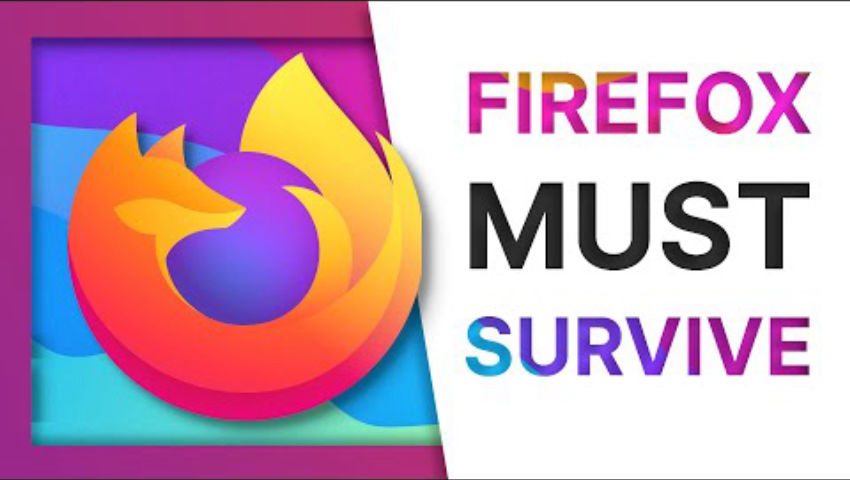- cross-posted to:
- videos@lemmy.ml
97
- cross-posted to:
- videos@lemmy.ml
Get 100$ credit for your own Linux and gaming server: https://www.linode.com/linuxexperiment Get your Linux desktop or laptop here: https://slimbook.es/en/ 👏 SUPPORT THE CHANNEL: Get access to an exclusive weekly podcast, vote on the next topics I cover, and get your name in the credits: YOUTUBE: https://www.youtube.com/channel/UC5UAwBUum7CPN5buc-_N1Fw/join Patreon: https://www.patreon.com/thelinuxexperiment Or, you can donate whatever you want: https://paypal.me/thelinuxexp?locale.x=fr_FR You can also protect your privacy by using this extension from Startpage, each install helps the channel with a small commission: https://add.startpage.com/en/protection/?campaign=4&source=aff 🏆 FOLLOW ME ELSEWHERE: Linux news in Youtube Shorts format: https://www.youtube.com/channel/UCtZp0mK9IBrpS2-jNzMZmoA Join us on our Discord server: https://discord.gg/xK7ukavWmQ Twitter : http://twitter.com/thelinuxEXP My Gaming on Linux Channel: https://www.youtube.com/channel/UCaw_Lz7oifDb-PZCAcZ07kw 📷 GEAR I USE: Sony Alpha A6600 Mirrorless Camera: https://amzn.to/30zKyn7 Sigma 56mm Fixed Prime Lens: https://amzn.to/3aRvK5l Logitech MX Master 3 Mouse: https://amzn.to/3BVI0Od Bluetooth Space Grey Mac Keyboard: https://amzn.to/3jcJETZ Logitech Brio 4K Webcam: https://amzn.to/3jgeTh9 LG Curved Ultrawide Monitor: https://amzn.to/3pcTVDH Logitech White Speakers: https://amzn.to/3n6wSb0 Xbox Controller: https://amzn.to/3BWmIA3 Amazon Links are affiliate codes and generate small commissions to support the channel 00:00 Intro 00:47 Sponsor: 100$ free credit off your Linux or Gaming server 01:37 The decline of Firefox 05:20 Why that's a problem 08:13 Why is Firefox important? 11:43 How can we solve this? 13:23 Sponsor: Get your Linux laptop or desktop with Slimbook 14:23 Support the channel There is no denying that Firefox has been progressively losing ground in the web browser race. It's highest peak was at the end of 2009, at almost 32% market share, when Internet Explorer has about 55%, and Chrome was barely edging out the 5% market share. Fast forward to 11 years later, and Chrome now has 62.7% of the market, where Firefox only has 4.2%. How did that happen? Why did the browser that basically started the work to take IE down, that introduced tabs to the masses, and that made sure web standards were respected, why did THAT browser fall so low? First, Mozilla completely missed the mobile market. There's also the fact that Google pushed CHROME very aggressively. Firefox also kinda rested on their laurels for a while, while Chrome worked tirelessly on their engine. Now you might think: that's a free market. People use what's best, and if Firefox gets better, people will flock back. And while that's a possibility, as it stands, it still creates an issue. The web relies on being open and on evolution. These evolutions, to be beneficial to everyone, need to be decided collectively, by independent organisms, supported by all browsers, and implemented freely. What I mean is that the browser engine shouldn't control how the web runs, looks, or what it can do. The browser engine is just there to ensure that websites and webapps just run like they should. The rise of Chrome and chromium based browsers, just like any other monopoly, turns that on its head. Developers, you see, can only implement features, if they know that their users will be able to make use of them. If everyone uses the same engine, and that engine decides to NOT implement a feature, then it's just not going to be used at all, because why make something that no user will ever be able to take advantage of? This is a problem. Not right now, but it might become one in the future. See, Chromium is open source, as is Blink, the rendering engine used in Chromium and every browser using it. It's open source, but decisions are made by Google. In 2019, 92% of commits to the code base were made by Google employees. So let's not kid ourselves: Google has total control over what goes in and what they don't want to see in Chromium. You might say, someone would fork chromium or Blink and start their own browser, and that would solve it. Except no one would move to that browser. What's important isn't Firefox specifically, it's having rendering engine diversity. Having 2 or 3 engines that have almost equal market share is crucial to avoid that situation, because in that case, the one that doesn't implement a new technology doesn't hold back the whole web. So how can we solve this? How can we make sure that Chromium doesn't start deciding how the web should run? Well, as users, apart from not using chromium based browsers, and supporting other engines financially, there isn't much we can do. The other option would be to try and take governance of Chromium away from Google, but I don't see that happening any time soon.



The reality of the situation is that developing a browser takes a huge amount of resources. Google effectively owns Chromium development, and gets to make all the decisions regarding how the engine works of what features are there. Recent controversy over Chromium trying to remove APIs using adblockers is a perfect example of this.
Furthermore, as Chromium becomes the dominant engine, website only care that they work properly with this engine. When the engine breaks the standards, what the engine is doing becomes the implicit standard. AMP is a great example of that.
The fact that you can theoretically fork and modify the source is completely meaningless in practice. If the web is designed around how Chromium works, then it doesn’t matter what some tiny fork with a dozen users is doing.
Google is fundamentally an ads company, and the internet is far too important for Google to become the sole gatekeeper for accessing it.
Very well said.
Furthermore, despite being open source, Chromium still has Google’s stuff baked in. Projects like Ungoogled Chromium and Bromite aim at removing them, but due to the extremely complex nature of a browser, it is hard to be sure you have gotten them all.
These guys are doing a good job, and dont have “google resources”… https://twitter.com/awesomekling/status/1508953394836353024
Getting CSS to render properly is certainly impressive, let’s see where that goes.
It is a problem, but I don’t think it’s as big as you or the video lets on. If Google does make particularly problematic changes, it’s not going to be some random users forking it, it’s going to be Microsoft. Microsoft is perfectly capable of maintaining an alternate version, after all they made edgeHTML almost from scratch and it worked fine. True, edge only has ~6% market share but it’s growing and whatever bad decision Google makes is likely to drive users away from chrome. Other chromium browsers would also likely switch to Microsoft’s fork.
And of course, Google also has to worry about pushback from other corporations or even governments, like they did with FLoc.
Google knows this, and so doesn’t do anything too out of line.
Manifest v3, which you gave as an example was delayed and google backtracked on like half the changes, just because some extension devs and a vocal minority of nerds protested. And in that situation, Google’s power over chromium was only half the reason, because google also has the chrome webstore, which they do truly have full control over and is not open source, but that’s a separate issue.
Another megacorp forking Chromium doesn’t really help solve thee problem. We need a browser that’s an actual community driven open source project. Microsoft is unlikely to have problems with features harmful to users such as tracking or disabling adblocker APIs because that sort of thing is perfectly compatible with their business model.
The entity maintaining the browser has to be fundamentally non-commerical. Mozilla is not perfect, but it’s the closest we have at the moment.
The reason Google backtracked is precisely because there is a viable alternative available, and if they made this change then we’d see droves of people moving to FF. In a world where Chromium is the only game in town they can push these kinds of changes through much easier.
Gecko is no more “community driven” than chromium. Mozilla has just as much control over it. You could argue that Mozilla is better company, but that’s a separate argument.
Mozilla is fundamentally a non profit foundation. It’s not perfect, but it’s not remotely comparable to commercial companies like Google and Microsoft that have a clear conflict of interest. I would personally prefer if Firefox was a true community effort, but having it as imperfect as it may be is still vastly better than not.
But that’s assuming that the changes will also be problematic for Microsoft, while their interest may align with Google’s in a lot of situations
That is true, we cannot always assume Microsoft will will be opposed to it.
But they are a competitor and considering how they’ve been pushing edge lately, I don’t think it would take too much for MS to split if they thought they could get an advantage that way.